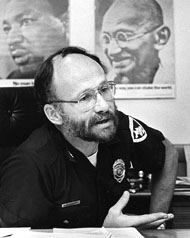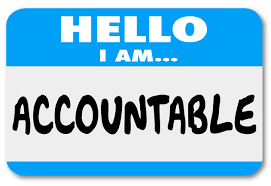“What is required at present is not professional police but accountable police.”
The Code of Silence and the Subculture of Policing
“I guess what our job really boils down to is not letting the assholes take over the city… What I am talking about are those shitheads out to prove they can push everybody around. Those are the assholes we gotta deal with and take care of on patrol… They’re the ones that make it tough on the decent people out there… they’re majority of what we do and its nothing more that asshole control.” – A Veteran Patrolman
“The collective myth surrounding the rule-bound ‘policeman [sic] as public servant’ has no doubt never been very accurate. By virtue of their
- Independence from superiors,
- Carefully guarded autonomy in the field,
- Deeply felt notions about real police work and those who would interfere with it,
- Increasing isolation from the public they serve (as a result of mobile patrol, rotating shifts, greater specialization of the police, and the growing segmentation of society at large with its own specialized and emerging subcultures) police-community ‘problems’ will not disappear.
“And, since the police view their critics as threatening and as persons who generally should be taught or castigated, one could argue that the explosive potential of citizen-police encounters will grow…
“If the police increasingly view their public audience as foes – whose views are incomprehensive if not degenerate or subversive – it is likely that they will also magnify cues which will sustain the stereotype of citizen-as-enemy escalating therefore the percentage of street interactions which result in improper arrest and verbal or physical attack…
“In fact, the future may make prophetic Brendan Behan’s half-jesting remark that he had never seen a situation so bad that a policeman couldn’t make it worse… Professionalism may well widen the police mandate in society and therefore amplify the potential of the police to act as moral entrepreneurs. From this perspective, what is required at present is not professional police but accountable police.” [“The Asshole,” by Jack Van Maanen in Policing: A View from the Street, Eds. Peter K. Manning and Jack Van Maanen, 1978.]
These, and other factors noted above, strongly challenge the integrity of a police officer:
- An unwritten, often unspoken, code of loyalty.
- Implied values which supersede all others – including organization rules and criminal laws.
- Unwavering support of one another; even in the face of wrongdoing.
- Working in the presence of danger.
- Irregularity of work; holidays and hours.
- The understood need to maintain order and respect on the street.
As, Van Maanen suggests, and I agree, the focus in police improvements rests more in requiring accountability than “professionalism;” for the argument can be made that accountability is not necessarily the practice of those who call themselves “professionals.”
For more see The Quality Leadership Workbook, Couper and Lobitz (2017)


Bang on!
They might even attempt to kill you if you get in their way…
MERRY CHRISTMAS & to YOU and YOUR’S a HAPPY NEW YEAR’S!
LikeLike
Reblogged this on World4Justice : NOW! Lobby Forum..
LikeLike